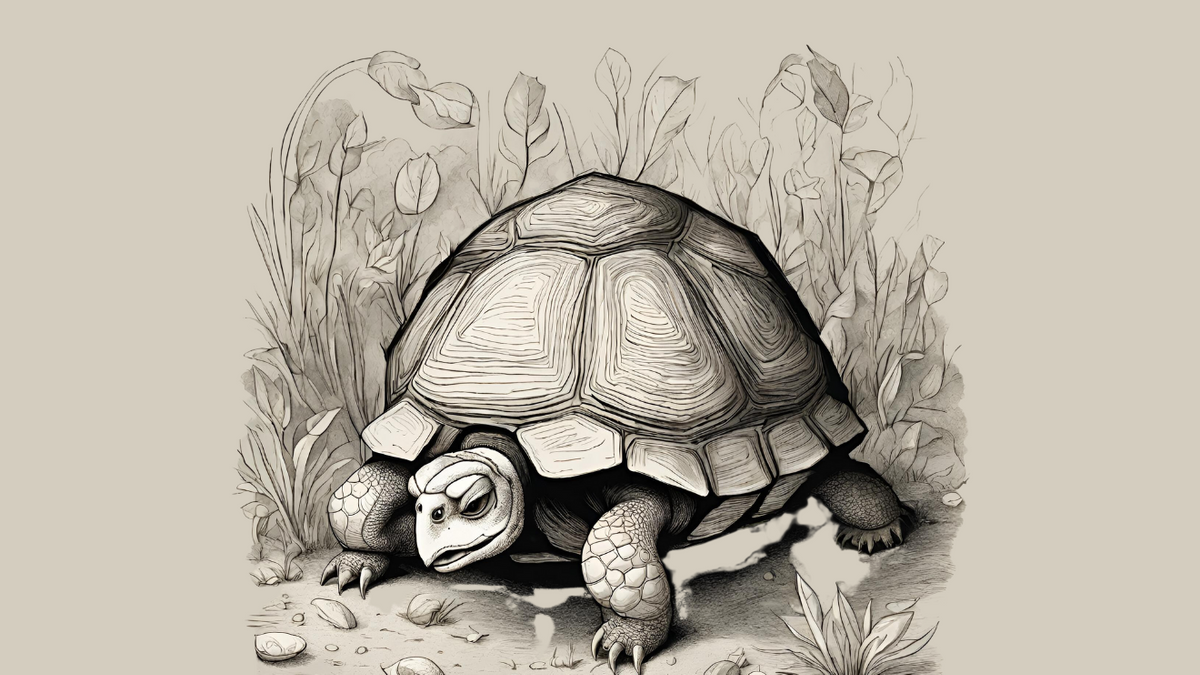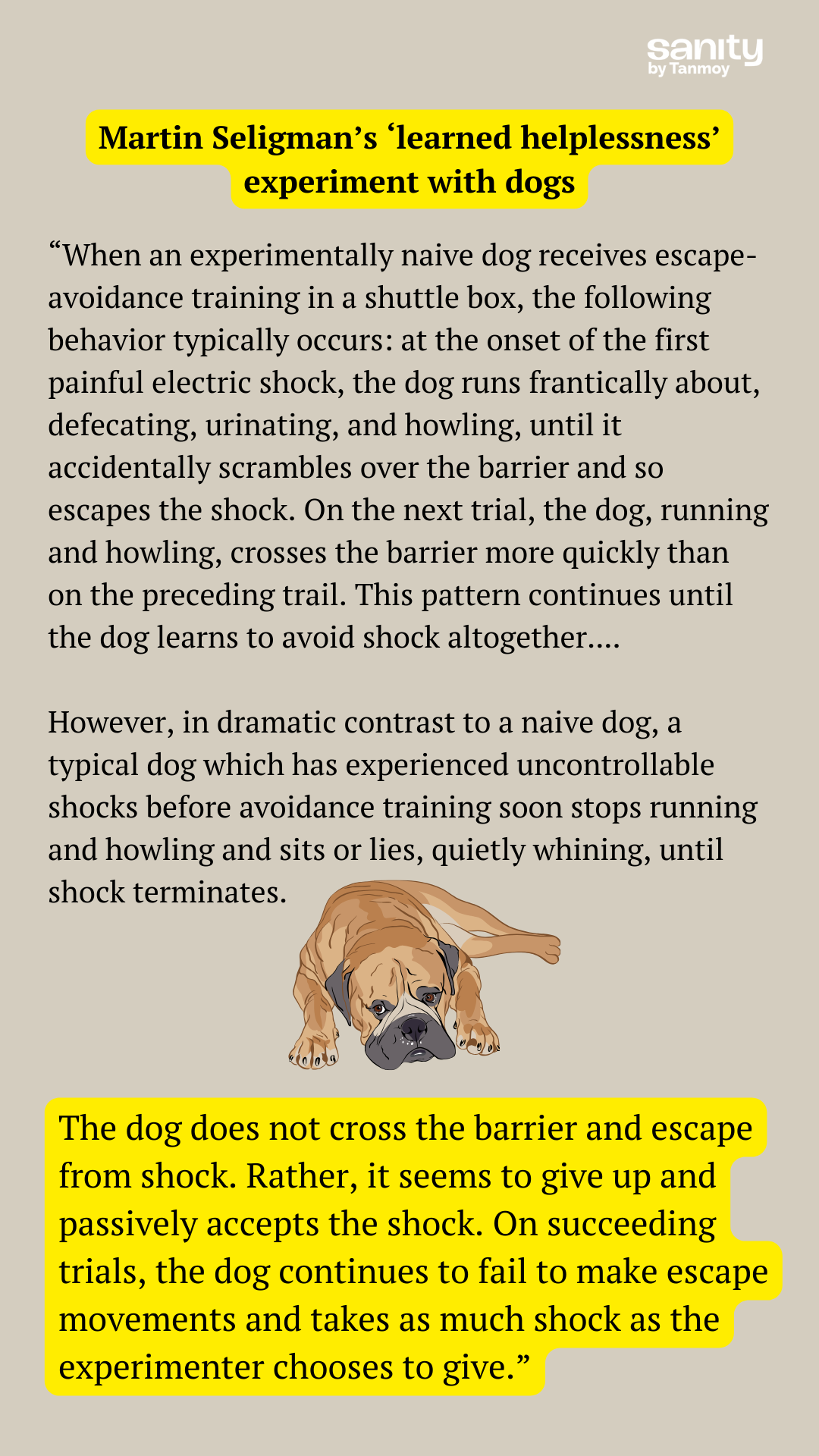"Don't get into trouble"
Up close with learned helplessness.

Thanks also to all of you who showed up in my various inboxes - Johan, Marjolein, Magdalena, Alan, Shephali, Amrita, Anindita, Peter 'Dada', Aparna, Yeshim, Ocean, Shinjini, Michelle, Saumya, Snigdha, Heidi, Margarida and my new friends from Portugal, and anyone else I am forgetting to name, I am so sorry - and helped me keep my head above water through the emotionally challenging parenting series. Thanks Irene for letting me be your fan and extended family. And thanks to everyone who read, shared, financially supported, and gave this platform a leg-up in any way.
Finally, I have to say thanks to Courtney Martin for her extraordinary manifesto on living through this time in history, and deciding how we want to respond without being swallowed whole by the pressure to perform it in public:
"I don’t want to pretend to know more than I do or care less than I do. I want to live in this world awake, gentle, fierce, thoughtful, realistic, other-oriented, intentional, standing up for the least structurally and materially powerful. I don’t want to be pressured into performance or assuaged by box checking. I want to learn and feel and pray and mobilize on an honest, humane timeline, a timeline that acknowledges the limitations of my knowing and time and body.
And yet! And yet, there is urgency here, as there so often is, as there always is? So I hold that paradox close — I will not do nothing. What I do will be imperfect. Let it be both strategic and human, smart and tender, personal and collective. Let it over and over again, as small as a prayer or as big as taking to the streets with thousands of others, reinforce that I am not accustomed to war and plan to die that way."
On that note, here's the final story of the parenting and mental health series. As Sanity closes in on its third birthday, I - we - have a few important decisions to make on how to keep going. You will hear from me soon on that. But for now, I leave you with a story that I have long wanted to tell you but didn't have the words until now.
Love,
Tanmoy
Every family has its own organising principle – a sacred doctrine if you will – that determines the kind of children they end up raising. Children are barred from crossing the behavioural boundary decreed by the doctrine. Mine was set up by mother: "Jhamelaay podo naa." Don't get into trouble.
Got bullied in school? Let it be. Don't get into trouble.
Baba hit you for no reason? Let it be. Don't get into trouble.
Shopkeeper cheated you? Let it be. Don't get into trouble.
Boss insulted you? Let it be. Don't get into trouble.
Upset about something rotten in the world? Let it be, son. Do. Not. Get. Into. Trouble.
After I left home at 18 for college, dived headlong into the world of literature saturated with noble heroes who overcame great adversity to battle wrong wherever they saw it, and discovered that I too had something called 'free will', I grew bitter at my mother for not teaching me how to use it.
I had no such expectations from my father, who, despite the fatherly wisdom on resilience I'm sure he possessed, only knew one mode of imparting life lessons: violent anger and punishment. But Maa was my gentle lodestar who was privy to all my darkest fears and was supposed to wash them away with her soft, unwavering glow. She was an independent working woman. Why didn't she show me how to stand up for myself and the world? Why did she just watch and weep from the sidelines? Why did her voice at the back of my head always remind me to keep quiet and never to thunder at injustice?
Via my English (hons.) syllabus, I learnt that my mother's shackles, and my decision to blame her, sprouted from the same poison seed: patriarchy. What I am still learning to accept is that what Maa wanted me to choose wasn't meek surrender. It was survival.
I am also learning to accept that sometimes you cannot use your free will not because you are a coward and lack conviction, but because you don't even know that you really are free.
When you forget to run
Some half a century ago, psychologist Martin Seligman (whose school of 'positive psychology' I have problems with, but we won't go into that today) showed in an experiment that dogs who were given electric shocks that they had no way of avoiding failed to take protective action during subsequent shocks – even if they were presented a way to escape or avoid the shocks. On the other hand, dogs who had not received unavoidable shocks immediately took action during future shocks.
Seligman theorised that the dogs who had experienced unavoidable trauma in the past, and so failed to take evasive action even when they could in the face of a new trauma, were victims of 'learned helplessness'. In humans, learned helplessness can be the outcome of both material and physical and emotional suffering. I know only too well that it is one of the most terrifying accompaniments of suicidal depression – when your entire being is seized by a sense of absolute helplessness, doesn't matter how empowered you empirically are to counterattack your way out of it.

To be sure, we don't have definitive knowledge about the mechanics of learned helplessness, who it affects, and to what degree. What we do know is that it isn't a death sentence, or the world wouldn't have so many heroes. For starters, there's your brain's magical neuroplasticity that can help it rewire itself after trauma. Then there's love and community. In Wired for Love: A Neuroscientist's Journey Through Romance, Loss, and the Essence of Human Connection, Stephanie Cacioppo explains how social connection and romantic love can help heal the brain and regain lost skills. Finally, your ability to push back against it is also boosted by accumulated privilege.
But despite all these defences, what makes learned helplessness a stubborn and slippery enemy is its ability to quietly inscribe itself into your personal narrative. Like a trojan virus, it can forever infect the story you tell yourself about who you are allowed to be.





